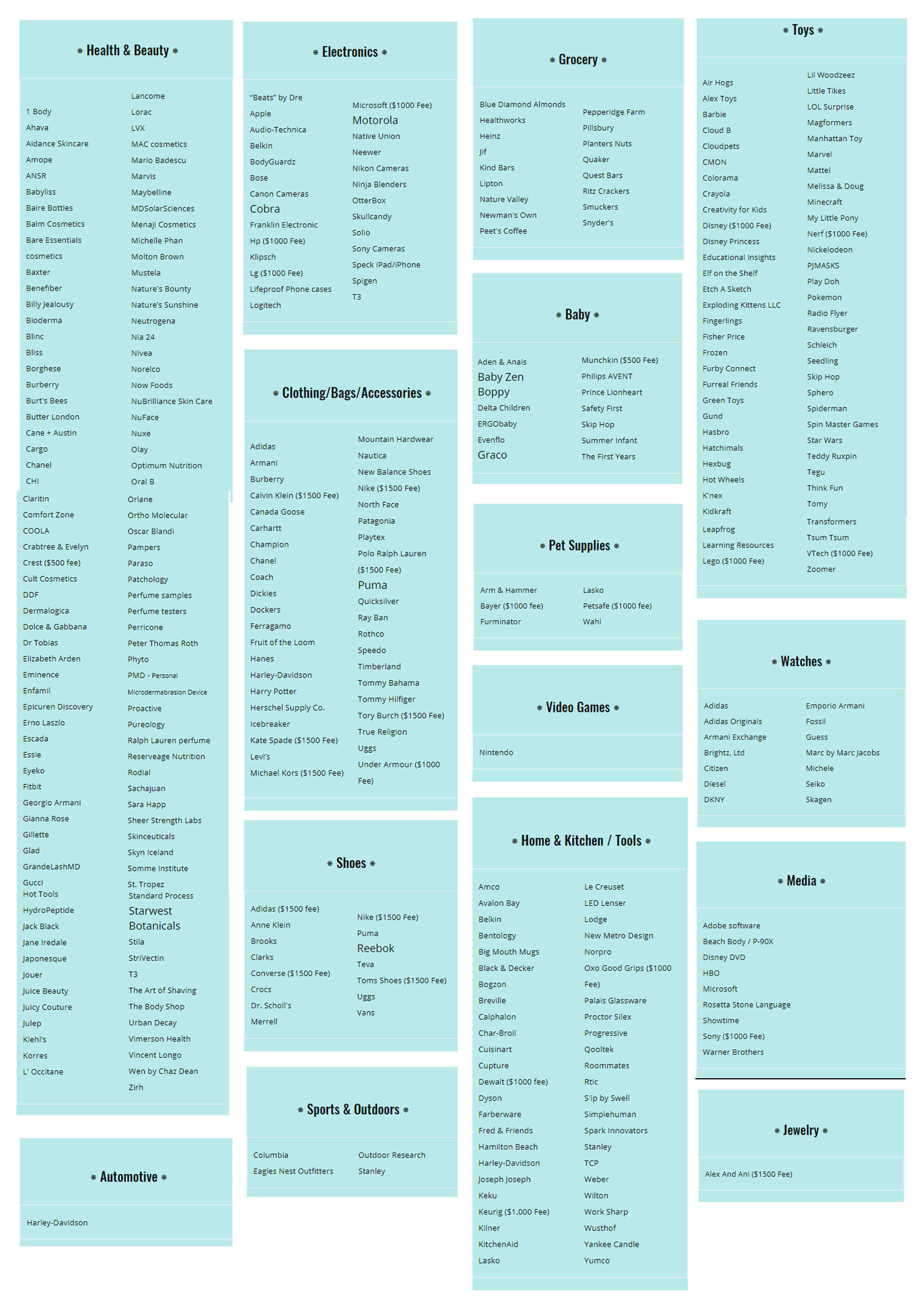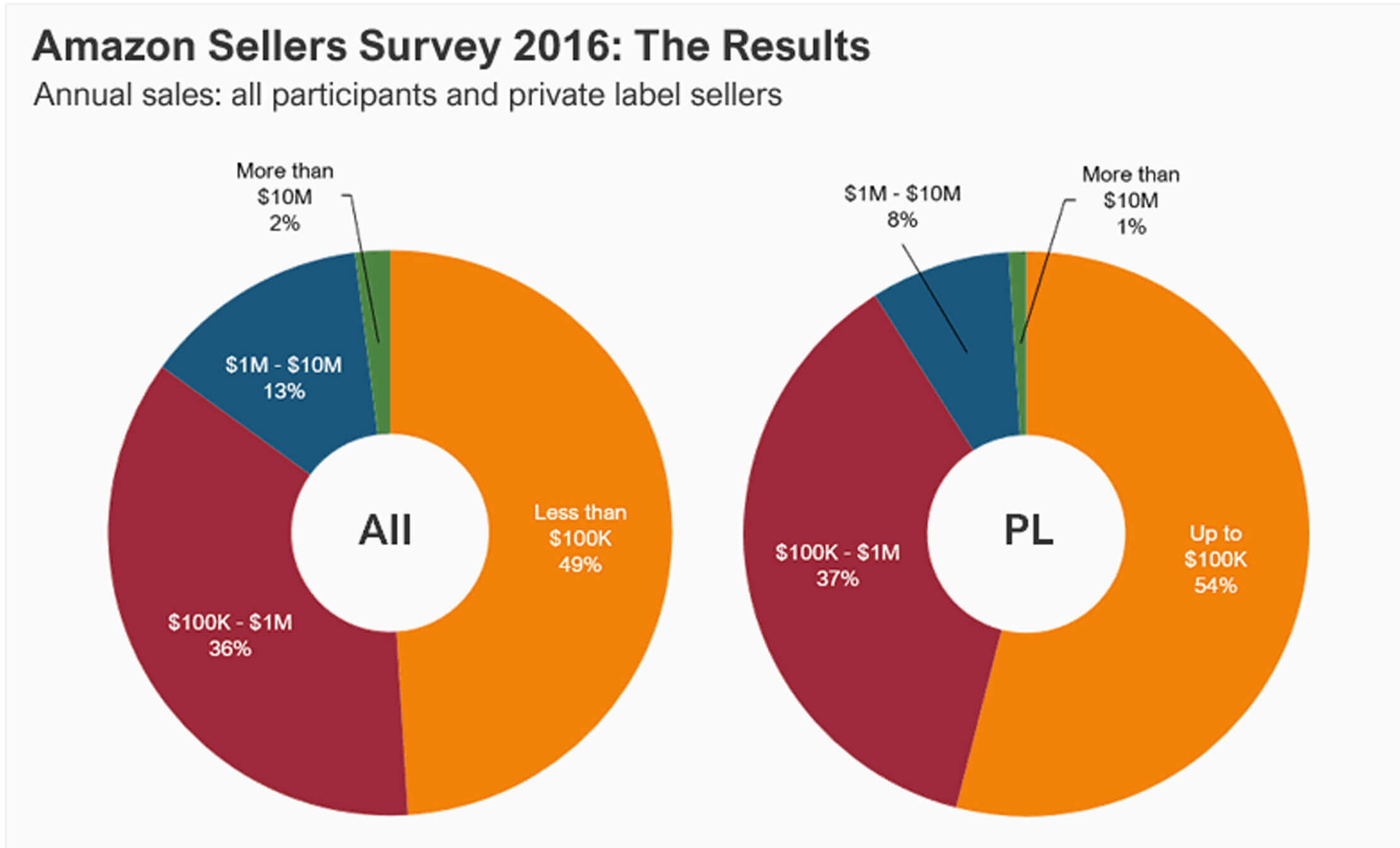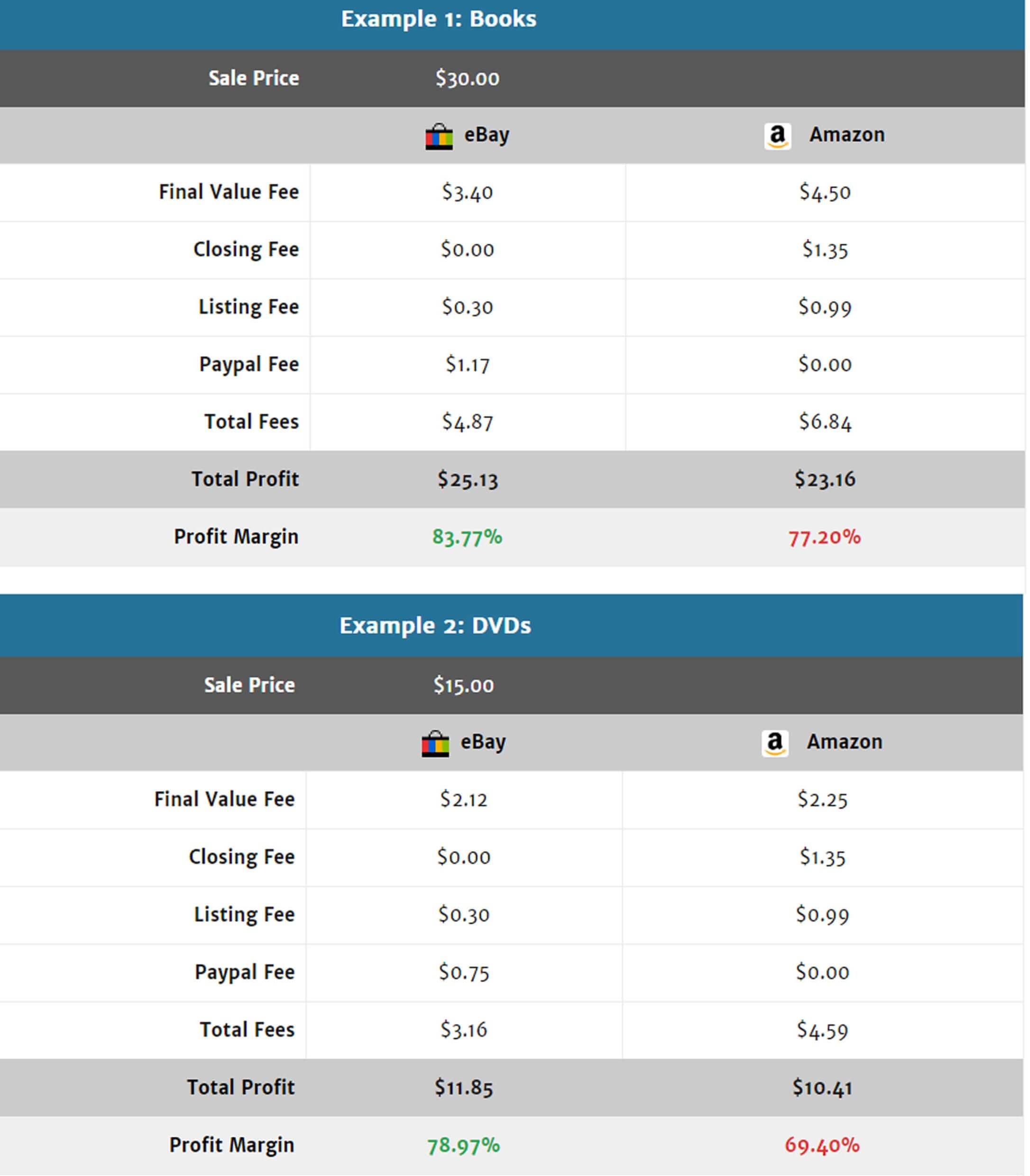These days there are many ecommerce platforms to sell on from Alibaba to Shopify but the two powerhouses still remain eBay and Amazon. I constantly hear people debating whether they should be selling their items on eBay or Amazon or on both? Personally, I believe that each marketplace has its own unique advantages and that one should choose the option that suits his or her needs best. I’m also a strong believer in diversification to mitigate risk, I previously dedicated an article where I shared one of my most valuable eBay selling advices regarding expanding your business beyond a single platform, I highly recommend reading it. The main difference between eBay and Amazon is the difference between cheap and less convenient and pricy but comfortable. This is obviously an oversimplification but this is how I view the dilemma.
In this post I will be comparing these marketplace based on:
- Competitiveness
- Scope of reach
- Selling experience
- eBay fees vs Amazon fees
Competitiveness: eBay vs Amazon
Obviously both online selling platforms which are based on the free market model of capitalism are competitive in their own right.
Before divining into my comparison of both sites which also mentions this issue – please keep in mind that Amazon is directly competing with third party sellers and very often will use small sellers as pawns in a game of corporate chess.
I would never apologise for the fact that part of Amazon competes with our sellers, I think competition raises standards, it forces both Amazon and sellers to raise their game. Amazon is a seller; it just happens to be the biggest seller.
This means Amazon is consciously competing with and undercutting third party sellers.
Back in 2007 74% of items were being sold by Amazon itself but by 2015, Amazon was selling only 56% of the products on their site in comparison with their third party retailers whereas in 2017 the split was roughly 50/50 and going into 2018 it seems that the scales are tipping in favour of third party sellers despite popular opinion as Amazon’s sales drop to 48%.
But just because Amazon’s sales are declining doesn’t mean they are not as competitive as ever.“There is no guarantee they [Amazon] won’t take advantage and in some cases they probably have. They can sell on their own account and they can see what is selling and what is not and that puts [Amazon] in a powerful position.” James Dunford-Wood, an e-commerce data specialist at Ometria says.
And from a seller’s perspective, “you are competing with sellers and Amazon”.
“If we find a nice product that starts selling well, you can bet that within six months Amazon will start selling it and undercut us.”
Keeping this in mind let’s compare Amazon’s competitiveness with eBay’s:
Amazon has a reputation for selling new products and tends to work in favour of larger brands and retailers such as niNiker Amazon’s own ‘house brand’. Many times, Amazon uses small retailers in order to identify trends and niche markets and then pushes them out by underselling and undercutting them. Amazon even has a list of restricted brands that sellers must pay a fee in order to sell:
With this in mind Amazon is a great marketplace for people to sell solid private label items and their fierce competition ensures that mostly the best items with great customer service and quality can make it on their site.
Source: WebRetailer (thanks for the great survey!)
eBay on the other hand has a reputation for a marketplace which sells mostly used items and collectibles – the ultimate online garage sale. Here is a fact that may surprise you:
81% of items sold on eBay are brand new!
Either way, eBay itself does not have its own brand nor does it try to use its sellers as guinea pigs in order to steal their business – it is purely an ecommerce platform. Beyond that, eBay as a marketplace provides a better platform than Amazon for small sellers to build their brand.
The bottom line is that Amazon is a far more competitive market for individual sellers and leans towards newer items whereas eBay provides sellers with the ability to build brand identity and while a majority of its items are new, it provides a niche for used items and collectibles.
Internationality - eBay vs Amazon
Many people wonder which marketplace has more international exposure and would obviously prefer to sell their items on a more international site, to a more varied customer base.
Amazon:
- Has 12 website domains in countries in North America, Europe, Asia and Australia
- Has customers in over 180 countries
- Reported 33% of sales outside the USA in 2016
eBay:
- Has 25 website domains globally in North and South America, Europe, Asia, Australia and New Zealand.
- In 2017, roughly 57% of eBay’s sales were from countries outside the USA
The bottom line is that eBay has more international scope and if you are looking to expand internationally and have a large, diverse customer base, eBay is your guy. If you prefer to have a US customer base, Amazon is a better bet.
Customer Base: eBay vs Amazon
When selling a product, it is wise to know who your customers are and what expectations they have. Let’s have a look at what differentiates Amazon shoppers from their cousins on eBay.
Amazon:
- Has 300 million monthly users
- 10% of those users or 30 million people use their application
- 44% of shoppers start their search for a product on Amazon but price check on other sites
- 44% of households in America have Amazon Prime
eBay:
- Has 167 million monthly users
- Due to eBay’s auction model, consumers expect to pay less so competitive pricing is important
- Level of service as well product quality are key – most buyers on eBay will only buy from sellers with a feedback score of 100 or higher
The bottom line:
- Amazon has double the amount of users than eBay does
- eBay buyers care more about quality service and products than a brand’s name but expect rock bottom prices
- Amazon shoppers are value focused meaning they are willing to spend extra money on Prime in order to get quick shipping and lower priced items and are not willing to overpay for a product
Amazon fees vs. eBay fees
Sometimes a quick search on Google can provide you with a very exact answer to a question you have. In this case, I decided to ask Google which of these two sites has lower fees:
‘eBay charges 10% FVF, while Amazon charges 15%. … The only fee that eBay charges that Amazon does not is the Paypal fee. This is 2.9% of the sale price plus a flat rate of $0.30. Winner: eBay – sellers keep an average of 5.13% more of their profits than if they sold the item on Amazon’.
I found this answer to be incredibly accurate and surprisingly well reasoned – the bottom line is that:
It is conclusively cheaper to sell on eBay than on Amazon!
Of course this is a very rough generalization since you have to also consider price vs. value. On eBay, you are left to your own devices in terms of:
- Shipping
- Storage
- Distribution
- Packaging
Whereas Amazon offers services to take the burden off of the seller which includes the likes of Fulfillment By Amazon or FBA. But of course if Amazon is making your life easier and providing you with a service they are going to charge you for it. On the other hand, do consider that even if you do not use Amazon’s seller services you will be paying more money in fees but you have the option to use these resources in the future.
Now that you have a clear conclusion I want to compare the fees that Amazon charges versus the fees that eBay charges:
These two examples are of common items sold on eBay and Amazon: Books and DVDs, in both examples you can see that both the net profit margins are higher on eBay than on Amazon. I have not performed this comparison on every item out there but am convinced that in most cases you will find that Amazon is more expensive from a sellers perspective.
I have written detailed posts explaining both eBay seller fees as well as Amazon seller fees and invite you to read about this in depth. There is a lot more than meets the eye as far as billing intricacies go in both cases.
The bottom line is that sellers hold on to an average of 5% more of their profits when using eBay in comparison with Amazon! But like I said at the beginning of this article, the question you need to be asking yourself is: Do I prefer a cheaper service or a more all-inclusive service? – sadly you can not have both.
Summing it up – eBay or Amazon?
At the end of this post you probably want a conclusive answer as to which marketplace to sell on. But as I said on multiple occasions you must decide what is most important to you.
Why choose eBay
Choose eBay as your preferred selling platform if:
- You want the absolute cheapest marketplace in terms of fees
- You are a doer who doesn’t need a company to manage the intricacies of shipping and storage
- It is important for you to have a varied and international customer base
- You want to develop a strong brand and not compete with eBay for business
- You sell collectibles, used or brand name items which are restricted on Amazon
Why choose Amazon
Choose Amazon as your preferred selling platform if:
- You don’t mind paying a little extra in fees and in exchange enjoy the perks of having a large corporation take care of shipping and handling for you
- You are more focused on a US based target market
- Brand identity is not as important to you as generating sales
- You sell mostly new items and don’t plan on selling items from Amazon’s restricted list
- You don’t have a problem with Amazon potentially undercutting your ecommerce business
If you have any other key differences or if you prefer one marketplace over the other for a specific reason, please share in the comments below 🙂








